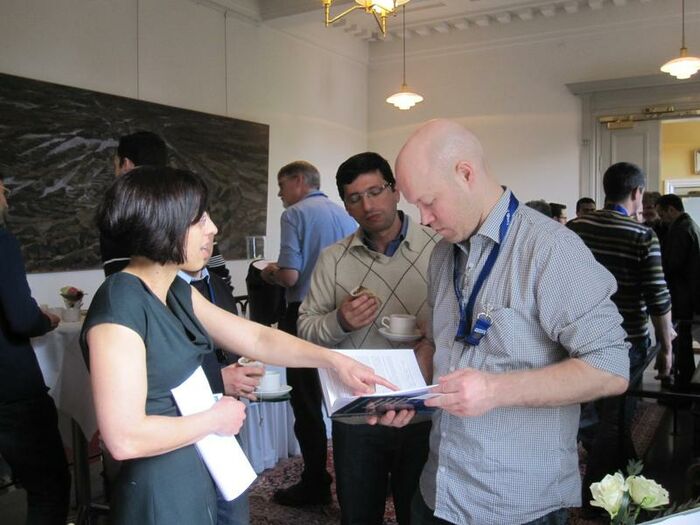Translating Research into Innovation

Translating Research into Innovation – For the Good of Society
Research and innovation share many similarities. They both rely on curiosity and creativity, and result in new, and sometimes ground-breaking, discoveries. However, there are also differences. Charlotta Johnsson is professor at the Department of Automatic Control and vice dean of LTH. “While fundamental research does not have to answer a need, innovation must convert an idea into a good or service that satisfies a specific demand, and creates value for humanity. The latter is my driving force, and something I would like to have a much more prominent place in the academic world”, she says.
With a background within Technology Management, and a past research position at the Centre for Entrepreneurship and Technology at UC Berkeley, where she contributed to developing the Berkley Method of Entrepreneurship, Charlotta Johnsson is passionate about innovation and its prerequisite – collaboration.
“Collaboration increases diversity, and diversity increases the opportunities for innovation, because it enables us to look at things from different perspectives and thus improve the original idea.”
The fact that successful innovators and entrepreneurs embrace diversity was one of the key findings of Charlotta Johnsson and her colleagues, when studying which ten characteristics were most important in becoming a successful entrepreneur in Silicon Valley. Other crucial abilities included the capacity to handle risks, the ability to tell great stories and transfer ideas, and a willingness to pay it forward and act as a role model.
“It’s an advantage to have all these characteristics in a team. Consequently, it’s a great idea to team up with people who have the characteristics that you don’t have, in order to succeed as an entrepreneur”, says Charlotta Johnsson.
Entrepreneurship matters
“Many people believe that entrepreneurship is solely the act of commercializing an innovation. But innovation and entrepreneurship are about translating the knowledge achieved within science, technology, engineering and mathematics into usefulness”, says Charlotta Johnsson and continues:
“It’s quite understandable that many researchers are not driven by the commercialization process. However, being conscious of the value of innovation and entrepreneurship for human development, market growth, technological breakthroughs, and economic growth, that is, as a way of creating value for society, will hopefully change their attitude.”.
In order to increase the awareness of young researchers, the Department of Automatic Control is actively contributing to a PhD course called “Innovation and Value Creation in Research” [länk: www.lth.se/english/staff/teaching-and-research/phd-studies/phd-courses/faculty-wide-phd-courses/innovation-and-value-creation-in-research-4-hp/] together with other faculties at the University.
“We hope that this will inspire PhD students to learn more about innovation and entrepreneurship”, says Charlotta Johnsson. The long-term goal? To increase value creation for society through research.
